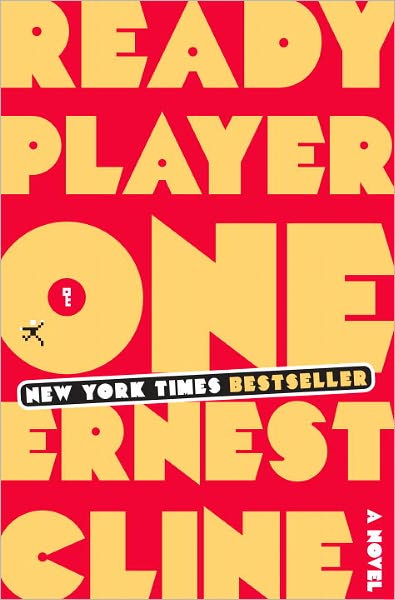Ready Player One
/
At the same time though, I found Ready Player One to be a considerable letdown. It's got almost all of the ingredients to make for an excellent story: there's plenty of nostalgic love wrapped up in it, but the book falls flat when it comes to the actual path of the story. The book also name-checks just about every obvious author, film, television show and comic book to make any fan giddy, and while it's fun to see everything in a great mashup, it ultimately serves little purpose for much of the plot.
Cline sets up a fairly plausible story that takes shape in 2044, where the world has taken a turn for the worst climate change and the decline of governments mean most people spend a lot of time in an online system known as OASIS, a technological mixup of virtual and augmented reality, social networking and a little bit of the Matrix thrown in there. People meet, fall in love, get educated, go to work, play and all of the other things that the internet currently does, and it's a pretty compelling place, until the founder, James Halliday, dies, leaving his entire fortune and control of OASIS to whomever can locate and solve three puzzles, all centered around his childhood and formative influences. Overnight, an entire class of people searching for the clues - Gunters - are born, ranging from the freelancers to the stereotypically evil corporation, IOI (known as the Sixers). Our protagonist, Wade Watts, joins in the fun just like everyone else, obsessing over Halliday's life and interests, and finds himself a world-wide celebrity when he uncovers the first key. The race is on, and he finds himself on an adventure that's more dangerous than he expected.
It's a fun, quick read, on par with what one might expect from a summertime movie (and this book is already optioned for film treatment - I'll be interested to see how they handle every franchise name-checked in it.) with about the same amount of depth. It's not a bad read: far from it, but in the couple of days since I finished it, I've had a bit of an off feeling coming from the story.
The central part of the problem isn't the packaging or concept of the story: it's what the characters do, and a lot of it comes down to the writing and execution of the story itself. Watts is the idealized geek: encyclopedic knowledge of '80s popular culture history, and frequently, the prose comes down to Watts explaining that he's downloaded, consumed and memorized just about all of it: it stretches the imagination a bit, which might be the idea, but it rubs me the wrong way. For one thing, the impressions of anything that I've come across isn't static. Recently, I re-read Ender's Game, and came away after a decade long break with a totally new understanding of the text and plot. Here, the materials that is so lovingly listed is treated as a mere object.
This leads me to my next issue with the story: the characters really don't learn much from their efforts. Watts and his band of friends memorize everything, but there's not a whole lot that they seem to get out of it, aside from some of the really big concepts, which makes their eventual successes a bit underwhelming: the lessons that they learned in finding the first key to the second to the third essentially only exist in that they're waypoints for the next movement forward, rather than yielding some form of knowledge and understanding of life and the world around us as the whole purpose of the exercise would be. Even the character's interactions with one another feel predictable, foretold, rather than allowing events to drive them. While IOI is looking to gain the keys for wealth and profit, that feels like it would be their weak point, where Watts & Co. succeed by learning something while moving forward. It's alluded to towards the end, but no more than lip service.
One of the major issues that acts as an umbrella for the entire book is that it's easy to list and incorporate everything into a giant mix of one's favorite franchises: it helps to provide some of the more exciting scenes in the book, but after reading the story, I found myself wondering what about the stuff that happened in between 2003 (the latest reference that I caught was Firefly), and 2044, a time that's more than double the period of popular culture influences? The book is intended as a nostalgic exercise, but popular culture is popular for far more reasons than mere nostalgia, it's the continued imagination that drives it forward. Far too frequently, it feels like the sudden popularity of geek culture is a blip in the ether, something that will slowly fade as our memories of our collective childhoods becomes just that much more hazy. There's a gap between the imagination and innovation of consumers and our tendency to fall back on what's familiar. While Ready Player One is a fun, exciting and page turning read, it heavily embodies the derivative nature of our culture, and runs with it. It's not a legacy that I really like.
To be sure, Ready Player One is a fantastic primer, one that sums up the check list of essential geek things to look in on. But it misses some of the key points of the heart of the subject. It's a good effort though, and if anything, it's well worth the entertainment and trip back in time.
